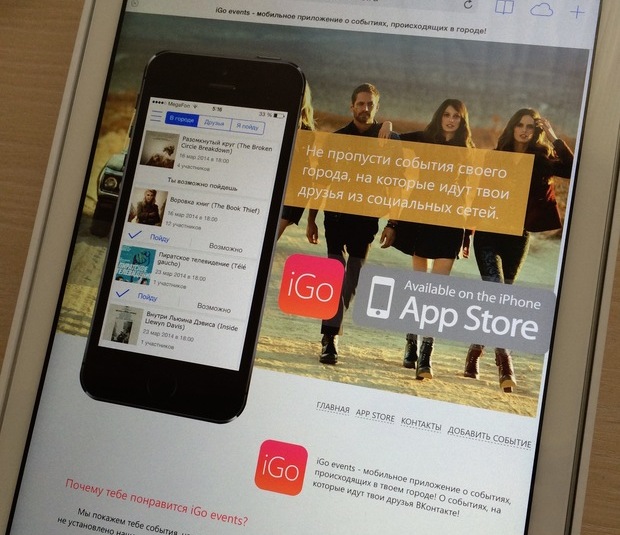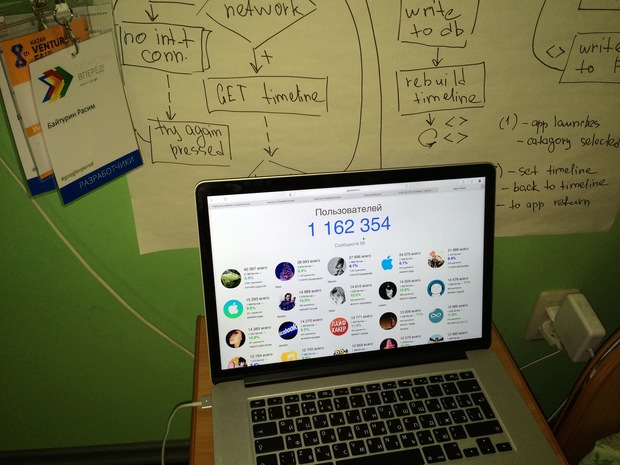From startupper to millionaire: how to create an app sought after by IKEA and Coca Cola
Former student of the Kazan Federal University failed three projects then created a fourth one with 70% profitability while seeing his service in the Russian Army
Rasim Baiturin's story became known after several newspapers called the student of the Higher Institute for Information Technology and Information Systems a millionaire. It was told he made a fortune together with his colleague who was also a student by creating a web application. But he already called the app described in the first publication a ''failure''. Then another two of his developments failed. Baiturin thinks these mistakes of a typical startupper were considered. He told Realnoe Vremya about his latest baby with a portfolio from the biggest companies that brings him 5 million rubles of net profit a year with a turnover of 7 million rubles.
Fame with prepayment
Rasim Baiturin – a graduate from the Higher Institute for Information Technology and Information Systems of the Kazan Federal University, son of a Bashkir businessman (owner of Miyakin Fish Company) – became known in the local media thanks to a project called iGo events. But the project existed just for several months and closed after a conflict inside the team of developers (who were five in total). Rasim Baiturin calls discord in the team caused the app's sudden death.
''One person wanted one thing, the other – another. Airat Khasyanov (director of the Higher Institute for Information Technology and Information Systems) was in contact with the 2013 Universiade organisers. And there was an opportunity to become their official app – it would be a great advertisement. I wanted to launch the app (the server and app for iOS were ready just within 6 months) and become part of the Universiade. But the colleague rethought the project and was ready to sacrifice the Universiade for a new vision. As a result, nobody succeeded,'' Baiturin tells.

But neither fame nor monetisation succeeded – the traffic was weak, investments for launching in several cities were needed for development. There were investors who were ready to invest in the project or buy it out. But we did not manage to come to an agreement with them because of the discord in the team.
Then Lime appeared that, consequently, became the developer's thesis – it is a mobile social magazine that allows to look for publications that are interesting for users in communities of social networks with instant notifications about new content. But this time there were no conflicts in the team. But the very idea, from a business perspective, was unviable.
The third project was completely commercial: there were created 200 public communities, each of which had about 20,000 followers, it was a lot then. A bot that prepared and published the content was created. And a purposefully written experimental app anyLike was to be a source of additional followers.
In the end, right anyLike was more prospective: they managed to make it a business project without repeating child mistakes of startup entrepreneurship. And existing 200 communities became feedstock for this application.
The test application was available in AppStore where it quickly gained popularity in the Russian segment. Mass following was its keynote, thanks to which accounts and public communities on Instagram and Vk.com were quickly full of followers. The product is monetised thanks to purchasing the domestic ''currency'' of the service – Likes (the rate is 11 Likes against 1 ruble or, for instance, 783 rubles per 10,000 Likes with a wholesale discount). Monetisation is fulfilled by a freemium model (shareware) that presupposes placement of an application/programme in the public domain to sell options to those who want to get the service better, faster and carefree.
''I said to my friend that if the currency is purchased for at least 300 rubles a day (it seemed good for a student then), I will do this project. Purchases were made on the first day already,'' Baiturin recalls.
The code of anyLike was written within 2 weeks and launched in October 2014. Monetisation of the project kicked off in January 2015. The young businessman was conscripted in July.
Business from the army: at night when no officer sees
While joining the Russian Army, Baiturin was sure: his project had several weeks of life. It is a complicated service where frequent improvements of the system components are vitally needed.
''Anyway, I prepared to the max: I stabilised the system (servers, web version and app for iOS), prepaid all the services. I prepared two people for the upcoming work and created an administration panel that was comfortable for them,'' the businessman remembers.
The businessman's mum and anyLike manager Irina Skanidavskaya were these two employees. The manager accepted payments and held negotiations with clients while the developer's mum administered the system: she dealt with analytics and technical part according to his instructions.
''I took a usual push-button phone without the Internet and a notebook with a pen to the army – it was to be enough for remote control of the project. I got reports every day through SMS – the rate in the system, incomes, important questions of users – I wrote everything down in the notebook and analysed.''
It was wild, Baiturin admits. One month after the toil, his parents brought him an iPhone 4. By summer 2015, it was already considered obsolete at home. But in the army, it was a portal to the advanced world where one could even programme.
''Immediately after the Young Fighter Course, we went for big training near Ulyanovsk (in the forest near the Volga River – Defence Minister Shoigu came there to have a look at how we were building pontoons through the river). There was no Internet there. But it was enough to leave the camping, an excellent view of the city opened and access to 3G across the forest, on the field near the Volga River,'' the web developer tells about his recent past.
Despite real difficulties, the project developed, and Baiturin even organised small ''banquets'' with his mates on the field – with a menu from fried bread and potatoes. Although the project had more problems than success.
''Swindlers are where traffic and money are. To cope with hackers, I needed to understand how to hack the system myself. In Notes application on iPhone, I wrote a protection algorithm, replayed it in my head 100 times, then sent it to my mum in several SMS. Then I sent instructions: how to open my MacBook, what to launch, which FTP directory, how to load the code in remote access, reload servers and how to test the viability and efficiency of it all quickly and, most importantly, how to cancel it all in case of an unsuccessfully written algorithm in the field near the fire – my mum who did not know how to use computers and smartphones, in general, and read such instructions in terror was doing a surprisingly great job! It was hard but now it is cool to remember!''
From ''black'' mass following
We can't say the idea of anyLike is unique. It is based on the demand of customers for fast augmentation of the base of community followers. They can place an advertisement or use ''black'' mass following for these purposes.
''We also started from the second option but quickly understood that usual augmentation benefited little: only bots, low share of target audience and activity, difficulties with public work, in general, because it breaches rules of the same social network and AppStore now. Today our app is a symbiosis of safe augmentation and advertising network,'' Baiturin says.
Now corporate customers are the majority of those who pay for possibilities of the application. According to Rasim Baiturin, IKEA, Coca Cola and Russian representative offices of AliExpress asked for anyLike services. Famous character Erik Davidovich also wanted to promote his blog.
For many companies, mass following is one of the inexpensive ways of promotion, the businessman says. Companies spend 30 kopeks-2 rubles on average to attract one follower, while in case of advertisement it would be 3-6 rubles and take much time.
Rasim Baiturin says now the project is gaining 5 million rubles of profit, though no penny was invested in it.
''The server already existed, there was a team, knowledge and experience, only marketing remains. We did not need to invest to promote the product. Fortunately for iOS developers, AppStore has quite an honest system of formation of the top of applications – quality products get good support and quickly become leaders,'' the developer tells.
The bet on iOS was strategically victorious, Baiturin thinks. If the developers had started with an application for Android, they would need to spend money on marketing because it would not be easy to become popular. The businessman explains that Android device users are less solvent. Further investments are not needed as well because the project already has its own possibilities for investments if needed in the future.

Further development of the application is possible if communities-partners increase. 200 own communities of Baiturin's team with 30,000 people on average is the source of followers now as well as those who exchange advertisements (mutual PR). Now the company has just five people: two developers, two managers and a marketing expert. Their goal is to make the company reach a turnover of 20 million rubles.